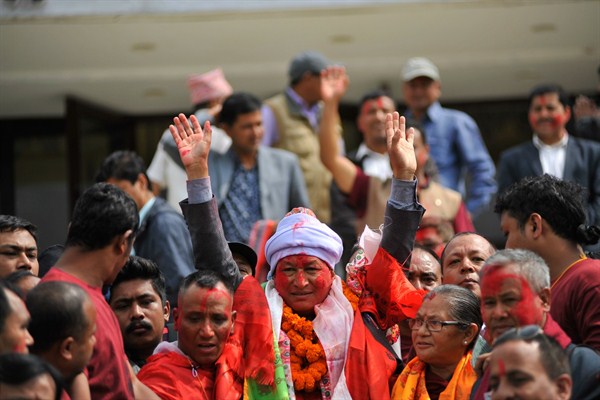In mid-September, Nepal closed the chapter on its first local elections in two decades, as the third phase of voting for municipal bodies took place in restive southern Nepal. The vote was free from the violence that marred the adoption of the country’s new constitution two years ago, when scores of people were killed in protests. Nepal is now preparing for general elections to be held Nov. 26, despite ongoing disputes over changes to the constitution and the longstanding marginalization of southern Nepal’s ethnic Madhesi population. In an email interview, George Varughese, the Asia Foundation’s representative to Nepal, discusses the local elections, what’s in store for November, and what issues lie ahead for Nepal’s turbulent democratic transition.
WPR: What was your takeaway from the final round of Nepal’s local elections, and what impact does participation from southern Nepal have on the process of implementing the new constitution?
George Varughese: Every round of local elections, including the last one, has shown that Nepalis are not as divided on the issues that matter to them as their political leaders portray them to be. The government that matters most to the average Nepali—whether from the south, north, east or west—is the local government that represents and addresses their local interests and needs. In Nepal, those interests and needs remain basic health, education and economic opportunity.

